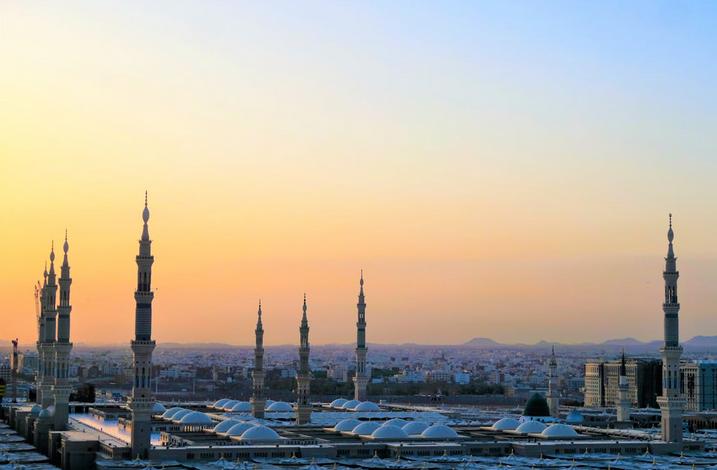Man’s Life as a Piece of Land: Building a House to Please Allah
In Islam, life is often seen as a trust from Allah, a responsibility given to each individual to make the most of their time in this world. One powerful metaphor to understand this is to see a person’s life as a piece of land upon which he must build a house that pleases Allah. This comparison beautifully illustrates the purpose, challenges, and rewards of life from an Islamic perspective. Just as a builder must carefully plan, gather resources, and work diligently to construct a sturdy and pleasing home, a Muslim must structure their life according to divine guidance to attain success in this world and the Hereafter.
The Land: A Divine Gift and a Trust
Every human being is granted a piece of land—symbolizing their life, opportunities, and resources. This land is a trust (Amanah) from Allah, and it is up to each individual to cultivate and use it wisely. Some people may receive fertile land, while others may have rocky terrain, but the responsibility remains the same: to build upon it in a way that pleases Allah.
Allah says in the Qur’an:
“And it is He who has made you successors (Khalifah) upon the earth and has raised some of you above others in rank that He may test you through what He has given you.” (Surah Al-An’am 6:165)
This verse highlights that life is a test, and the different circumstances we face are part of that test. Some may be given wealth and ease, while others may struggle with poverty and hardship. However, the true measure of success is not in the land itself but in how one chooses to build upon it.
The Foundation: Faith and Intention (Iman and Niyyah)
Every strong house requires a solid foundation. In the life of a Muslim, this foundation is faith (Iman) and sincerity of intention (Niyyah). If a house is built on weak ground, it will eventually collapse. Similarly, if a person’s life is built without true belief in Allah and sincere intentions, their deeds will have no real value.
The Prophet Muhammad (peace be upon him) said:
“Actions are but by intention, and every person will have only what they intended.” (Sahih Bukhari, Hadith 1)
This means that everything a Muslim does must be rooted in the sincere intention to seek Allah’s pleasure. Whether a person is working, studying, raising a family, or engaging in acts of worship, the sincerity of their purpose determines the strength of their foundation.
The Structure: The Pillars of Islam
A house needs strong pillars to stand upright. In Islam, these pillars are the five fundamental acts of worship known as the Five Pillars of Islam:
- Shahada (Declaration of Faith) – The testimony that there is no god but Allah and that Muhammad is His Messenger is the main supporting pillar of the house. Without this declaration, the structure cannot exist.
- Salah (Prayer) – Just as walls provide support and shape to a house, prayer gives structure to a Muslim’s daily life. The five daily prayers serve as a constant reminder of a Muslim’s purpose and connection to Allah.
- Zakat (Charity) – Just as a house must have doors and windows to allow fresh air in, generosity and charity ensure that wealth is purified and benefits others. This keeps the spiritual house healthy and free from greed.
- Sawm (Fasting in Ramadan) – Fasting strengthens self-discipline and purifies the soul, much like cleaning and maintaining a house to keep it in good condition.
- Hajj (Pilgrimage to Mecca) – For those who can afford it, Hajj completes the structure, symbolizing a Muslim’s journey towards the final goal: meeting Allah in the Hereafter.
The Interior: Good Character and Righteous Deeds
A beautiful house is not just strong on the outside; it must also be well-kept on the inside. This represents the importance of good character and righteous deeds.
The Prophet Muhammad (peace be upon him) said:
“The best among you are those who have the best manners and character.” (Sahih Bukhari)
Islam places great emphasis on kindness, honesty, patience, humility, and compassion. A house may appear grand from the outside, but if it is full of dirt and disorder inside, it is not truly livable. Likewise, a person who prays and fasts but treats others poorly has an incomplete spiritual house.
The Roof: Tawakkul (Trust in Allah) and Gratitude
A house needs a roof for protection. In a Muslim’s life, this roof is trust in Allah (Tawakkul) and gratitude (Shukr). No matter how well-built a house is, external storms can still strike. Similarly, in life, trials and difficulties will arise.
Allah says:
“And whoever relies upon Allah – then He is sufficient for him.” (Surah At-Talaq 65:3)
Having Tawakkul means believing that Allah’s plan is always for the best, even when things seem difficult. Gratitude ensures that a Muslim appreciates the blessings they have instead of focusing on what they lack. Just as a sturdy roof keeps a house safe from the elements, trust in Allah and gratitude protect the heart from despair and dissatisfaction.
The Maintenance: Seeking Knowledge and Repentance
A house requires regular maintenance to remain in good condition. Similarly, a Muslim must continuously seek knowledge and engage in repentance (Tawbah) to keep their faith strong.
The Prophet Muhammad (peace be upon him) said:
“Seeking knowledge is an obligation upon every Muslim.” (Sunan Ibn Majah)
Islamic knowledge helps a person navigate life correctly, while repentance cleanses mistakes and sins, just as cleaning prevents a house from becoming uninhabitable.
The Ultimate Reward: A House in Jannah
The effort put into building a righteous life does not go unrewarded. In return for their faith and good deeds, Allah promises the believers a house in Jannah (Paradise):
The Prophet (peace be upon him) said:
“Whoever builds a mosque for Allah, Allah will build for him a house in Jannah.” (Sahih Muslim)
This highlights that acts of worship and good deeds not only build our spiritual house in this world but also secure our eternal home in the Hereafter.
Conclusion
In the end, every person is given a piece of land—one lifetime—to build something meaningful. A Muslim’s duty is to construct a house that pleases Allah, using faith as the foundation, worship as the pillars, good character as the interior, trust in Allah as the roof, and knowledge and repentance as maintenance. Those who build wisely will find their reward in the Hereafter, where Allah will grant them an eternal home in Jannah, far greater than anything they could have built in this world.
May Allah guide us all to build a house worthy of His pleasure. Ameen.

